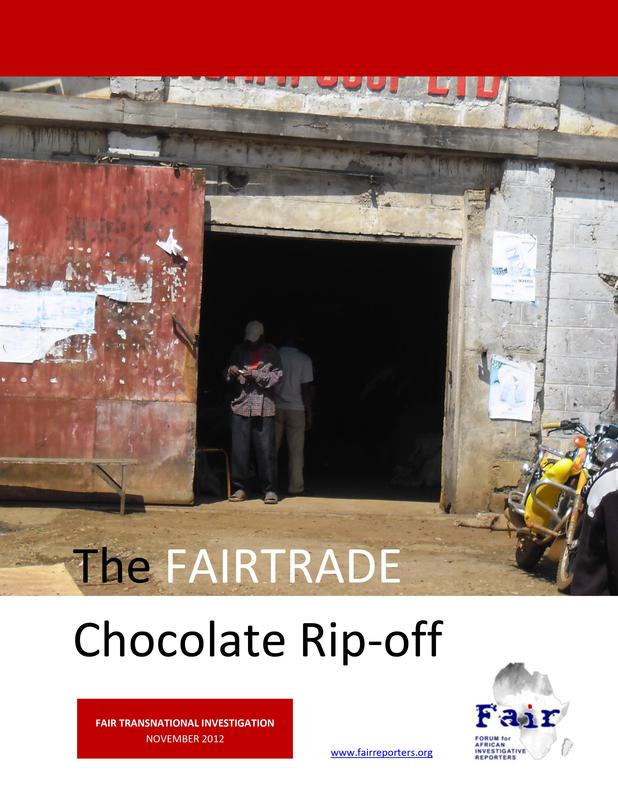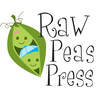fair trade & the cocoa mafia
We’ve all heard the horror stories about child slave labor and subsistence wages in the cocoa industry. That is why many people only buy “Fair Trade” chocolate. But a growing chorus of investigative journalists, non-profit organizations, and even food companies are questioning the integrity of these labels and with good reason.
On Africa’s Ivory Coast, for instance, such cooperatives are often run by unscrupulous intermediaries whom critics have dubbed “The Cocoa Mafia.” These middlemen operate a monopoly on purchasing from small, family farms with “take-it-or-leave-it” below-market prices. After selling the cocoa at large mark-ups, they do not share the proceeds fairly or as promised to farmers. Moreover, farmers report that what payments they do receive are frequently late, forcing them to take out loans in order to make ends meet and sending them into a cycle of debt from which they struggle to escape.
In these ways, and in spite of the claims of Fair Trade certifications, farmers face many of the same problems Fair Trade cooperatives were intended to cure. Just as troubling, they are then forced to bear the additional burdens and expenses associated with membership in such a cooperative, such as inspections and maintaining its local bureaucracy. In the end, many West African farmers pay all of the costs associated with Fair Trade licensing but get little to none of the benefit that comes from selling their certified cocoa for higher prices on the world market. In fact, an investigation into the workings of one Dutch-based Fair Trade label certifying West African chocolate reported that for every bar of choco
late sold, the Fair Trade labeling agency made twice as much as the cocoa farmer.
Yet despite these and other problems, Western consumer demand for the conscience-soothing balm of the Fair Trade label has left many farmers little choice but to participate in such schemes. Many large, Western food companies which produce cocoa-based products understand that the absence of a Fair Trade label can place them at a competitive disadvantage, and as a result, refuse to purchase cocoa that does not carry such certification. Therefore, in a regrettable and tragic irony, Western consumer demand for Fair Trade cocoa is promoting a system that can itself perpetuate exploitation of cocoa farmers.
So what is a conscientious consumer to do? A comprehensive analysis of each of the wide variety of Fair Trade labels certifying cocoa throughout the world and whether or not they live up to their claims is beyond the scope of this cookbook, as are concerns relating to other Fair Trade licensed crops, such as coffee, which also exist. But my own research has led me to conclude that when it comes to chocolate, just because a product is labeled as “Fair Trade” doesn’t mean it necessarily is. Likewise, just because it is not labeled in this way doesn’t mean it is not. Citing the ethical concerns previously noted as well as those relating to quality (farmers who do not benefit from creating higher quality products therefore lack incentive to do so), some small food companies are choosing to avoid the Fair Trade system in order to make their own purchases directly from farmers. Not only does this allow them to cut out potentially exploitive middlemen who might cheat those farmers, but to ensure, for themselves, that the product they are using is not only high quality and sustainably produced, but that the grower is fairly compensated.
So do your homework before voting with your consumer dollars. Do not automatically reject a product if it is lacking a Fair Trade label if that company can provide an alternative assurance, such as one vegan candy company which notes on its website:
The cocoa used in our rice-milk chocolate coating… is sourced from a company that promotes sustainability: encompassing fair labor (only sources where international labor standards are practiced), environmental stewardship, and providing improved economic returns for cocoa farmers… So, while our chocolate isn’t certified Fair Trade, it is ethically sourced. As an aside, Fair Trade Certification is a costly and ongoing expense for a compliant company wishing to use this designation. This is why many companies sourcing ethically are not certified “Fair Trade.” Our vendor has chosen not to absorb this cost. We understand our vendor’s stance and support them 100 percent.
By the same token, research the meaning of any ethical guarantee to ensure it is worthy of your faith before purchasing. Programs to ensure justice for cocoa farmers would eliminate predatory intermediaries or empower farmers with the information they need to protect themselves, such as access to information about fluctuating cocoa prices on the world market; information which many farmers now lack due to government censorship. Moreover, such programs would seek to assist cocoa farmers by helping them to become their own advocates, such as building roads and other needed infrastructure that would end their reliance on others to sell the products they grow on the international marketplace.
For in the end, individual empowerment and independence are the keys to improving the economic fortunes of cocoa farmers. Concludes one report: “All cocoa veterans and experts interviewed concurred that only more ‘power’ to the farmers themselves, be it through income or information, or preferably both, would help them to grow their businesses.”
On Africa’s Ivory Coast, for instance, such cooperatives are often run by unscrupulous intermediaries whom critics have dubbed “The Cocoa Mafia.” These middlemen operate a monopoly on purchasing from small, family farms with “take-it-or-leave-it” below-market prices. After selling the cocoa at large mark-ups, they do not share the proceeds fairly or as promised to farmers. Moreover, farmers report that what payments they do receive are frequently late, forcing them to take out loans in order to make ends meet and sending them into a cycle of debt from which they struggle to escape.
In these ways, and in spite of the claims of Fair Trade certifications, farmers face many of the same problems Fair Trade cooperatives were intended to cure. Just as troubling, they are then forced to bear the additional burdens and expenses associated with membership in such a cooperative, such as inspections and maintaining its local bureaucracy. In the end, many West African farmers pay all of the costs associated with Fair Trade licensing but get little to none of the benefit that comes from selling their certified cocoa for higher prices on the world market. In fact, an investigation into the workings of one Dutch-based Fair Trade label certifying West African chocolate reported that for every bar of choco
late sold, the Fair Trade labeling agency made twice as much as the cocoa farmer.
Yet despite these and other problems, Western consumer demand for the conscience-soothing balm of the Fair Trade label has left many farmers little choice but to participate in such schemes. Many large, Western food companies which produce cocoa-based products understand that the absence of a Fair Trade label can place them at a competitive disadvantage, and as a result, refuse to purchase cocoa that does not carry such certification. Therefore, in a regrettable and tragic irony, Western consumer demand for Fair Trade cocoa is promoting a system that can itself perpetuate exploitation of cocoa farmers.
So what is a conscientious consumer to do? A comprehensive analysis of each of the wide variety of Fair Trade labels certifying cocoa throughout the world and whether or not they live up to their claims is beyond the scope of this cookbook, as are concerns relating to other Fair Trade licensed crops, such as coffee, which also exist. But my own research has led me to conclude that when it comes to chocolate, just because a product is labeled as “Fair Trade” doesn’t mean it necessarily is. Likewise, just because it is not labeled in this way doesn’t mean it is not. Citing the ethical concerns previously noted as well as those relating to quality (farmers who do not benefit from creating higher quality products therefore lack incentive to do so), some small food companies are choosing to avoid the Fair Trade system in order to make their own purchases directly from farmers. Not only does this allow them to cut out potentially exploitive middlemen who might cheat those farmers, but to ensure, for themselves, that the product they are using is not only high quality and sustainably produced, but that the grower is fairly compensated.
So do your homework before voting with your consumer dollars. Do not automatically reject a product if it is lacking a Fair Trade label if that company can provide an alternative assurance, such as one vegan candy company which notes on its website:
The cocoa used in our rice-milk chocolate coating… is sourced from a company that promotes sustainability: encompassing fair labor (only sources where international labor standards are practiced), environmental stewardship, and providing improved economic returns for cocoa farmers… So, while our chocolate isn’t certified Fair Trade, it is ethically sourced. As an aside, Fair Trade Certification is a costly and ongoing expense for a compliant company wishing to use this designation. This is why many companies sourcing ethically are not certified “Fair Trade.” Our vendor has chosen not to absorb this cost. We understand our vendor’s stance and support them 100 percent.
By the same token, research the meaning of any ethical guarantee to ensure it is worthy of your faith before purchasing. Programs to ensure justice for cocoa farmers would eliminate predatory intermediaries or empower farmers with the information they need to protect themselves, such as access to information about fluctuating cocoa prices on the world market; information which many farmers now lack due to government censorship. Moreover, such programs would seek to assist cocoa farmers by helping them to become their own advocates, such as building roads and other needed infrastructure that would end their reliance on others to sell the products they grow on the international marketplace.
For in the end, individual empowerment and independence are the keys to improving the economic fortunes of cocoa farmers. Concludes one report: “All cocoa veterans and experts interviewed concurred that only more ‘power’ to the farmers themselves, be it through income or information, or preferably both, would help them to grow their businesses.”
|
“On paper, the case for FAIRTRADE, and a partnership between FAIRTRADE and membership-based cooperatives, seems like a good one. After all, the West African countries where the raw cocoa resource is grown, all suffer from state mismanagement and corruption, and exploitation of individual farmers by multinational buyers as well as local middlemen. FAIRTRADE was originally intended as a response to these problems. But… a partner cooperative is not a fair, transparent, democratic institution simply because an outside partner wants it to be. Power relations, hierarchies and (functioning or faulty) management structures are features of the entire country, and to think one can, from the outside, encourage differently functioning ‘islands’ within a society hardly seems realistic.”
- Excerpt from the Forum for African Investigative Reporters’ Transnational Investigation, The Fairtrade Chocolate Rip-off |






